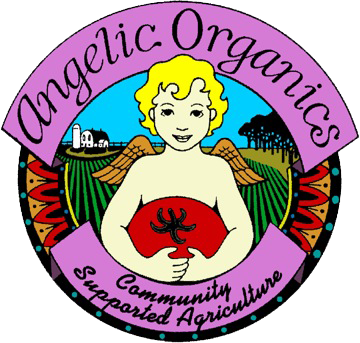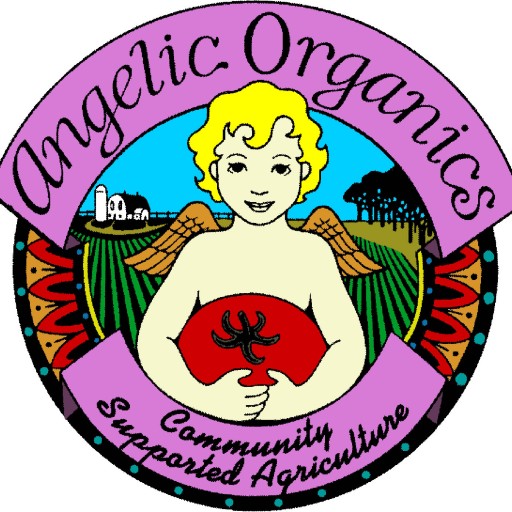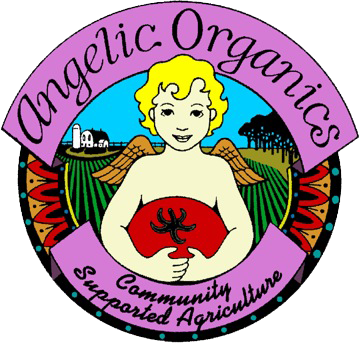Farmer John discusses Compost, our Gift to the Earth – Harvest Week 11: Tue/Wed/Thurs Delivery, Aug 20, 21 & 22, 2013
Welcome to Harvest Week 11
In Farm News, Farmer John discusses Compost, our Gift to the Earth.
The Weather
Cool and dry. Temperatures are gradually rising.
The Crops
Also finished are the cucumbers and the zucchini. Luckily, we’ve got lots, lots more crops to keep your boxes full
The Work

Onions in Flight, about 30,000 lbs total. This took about 3 hours of field time with our old onion harvester
When we got done with the onion harvest, Primo told me to pull the onion harvester up to the shop.
“What are you going to do with it?” I asked.
“Wash it,” he said. “And order that idler sprocket,” he added, pointing to the idler. “And that other idler, and that pulley, and I want to order this belt that was slipping.”
“Is that so you’ll have them on hand for next season?” I asked, wondering why I was asking, because I pretty much knew the answer, but I guess I wanted to hear it anyway, knowing how good it would sound.
“Oh, no. I’ll replace them all now.”
That’s Primo. “On time” is late for him. “Early” is on time.

“I need a chiropractor,” the wagon said. “I’ll just sit right here until these 10,000 lbs of onions are unloaded.”
Compost
I like building compost. This year, we’re making 1000 tons of it, 500 to apply to the fields this August and early September, and 500 tons curing for application to the fields a year from now.

These piles are each about 150 ft long. We now have 6 of them. Andrew Stewart is operating the Bobcat loader. Andrew is our compost builder and manager
We build the piles out of straw and horse manure from the horse farm next door; cattle manure from nearby farms; our vegetable discards; manure from the Learning Center, and, this year, chopped clover, alfalfa and grass from our cover crops. We adhere strictly to the organic and GAP (Good Agricultural Practices) regulations regarding manure, and apply our compost on the fields typically 9 or 10 months before any crops are harvested from them, immediately working the material into the ground to begin the process of assimilation and to avoid runoff and potential nitrogen volatilization. We have started to apply the composted manure already on our fields that are now fallow and will be in production next year.

Our neighbors chopped our 20+ acres of cover crops to add to our compost piles. (As you probably know by now, I like getting things done fast on the farm, because there’s so much to do, and one of the biggest dangers on the farm is getting behind.) They chopped and hauled about 18 semi-loads to our compost site in 4 or 5 hours. Until this year, we chopped the cover crops right back onto the field every ten days or so with our flail chopper. But this year, we decided to go to the extra trouble and expense of harvesting the cover crop, transforming it into compost, and then spreading it on the fields. It has a much better chance of truly transforming our silty loam clay soil into divine earth when it goes through this process.

Bruno Follador is our compost consultant. He’s a big part of why I’ve become so much more committed to compost building this year. (Before this year, I was only passionate about compost; this year, I’m gaga.) Bruno has devoted many years of his life to compost, consulting with farms in South America, Europe and the U.S. Not only is he thoroughly knowledgable about how to form compost piles (working with the various combinations of air, warmth, earth, and water), but he is also very knowledgable about how to enhance the compost with the Biodynamic Preparations, as outlined by Rudolf Steiner in the Agriculture Course. Bruno says, “compost is not primarily about getting better yields nor about converting waste into resources. It is primarily about giving back to our Mother Earth.” Go, Bruno!

Jeep Tour of the Compost Pile over Dessert and Cocktails, Learning Center Farm Dinner, August 3. Bruno Follador instills wonder and awe in the guests. Farmer John’s wife Haidy ponders the evening through the rear window
Upcoming at the Angelic Organics Learning Center
Make your own fresh cheese and pasta to go with you farm vegetables on Saturday, September 7th at Angelic Organics Learning Center!
Register for one or both workshops, visit: learngrowconnect.org/event or call 815-389-8455.
Cheesemaking, 9 AM to 12 PM
This hands-on workshop in our farm setting will introduce the process of cheese making from start to finish (from milking the goats to tasting fresh goat’s cheese). We’ll learn how to make ricotta, chevre, mozzarella and more!
Handmade Pasta, 2 to 5 PM
Ever wonder how to make pasta from scratch? Using fresh eggs from the farm, we’ll explore the history, ingredients, tools and techniques for making multiple types of Italian pasta, including fettuccini, ravioli and hand shaped pasta.
Box Contents
Please Note: this summary is written before you receive your box—please be aware that some guesswork is involved. As always, be sure to thoroughly wash all of your vegetables.
Salad Greens – Lettuce, Baby Chard
Fruiting Crops – Muskmelon, Watermelon, Galia Melon, Tomatoes, Sweet Peppers, Hot Peppers, Eggplant
Herbs – Parsley
Alliums – Garlic, Onions









Very impressed with the compost operation!